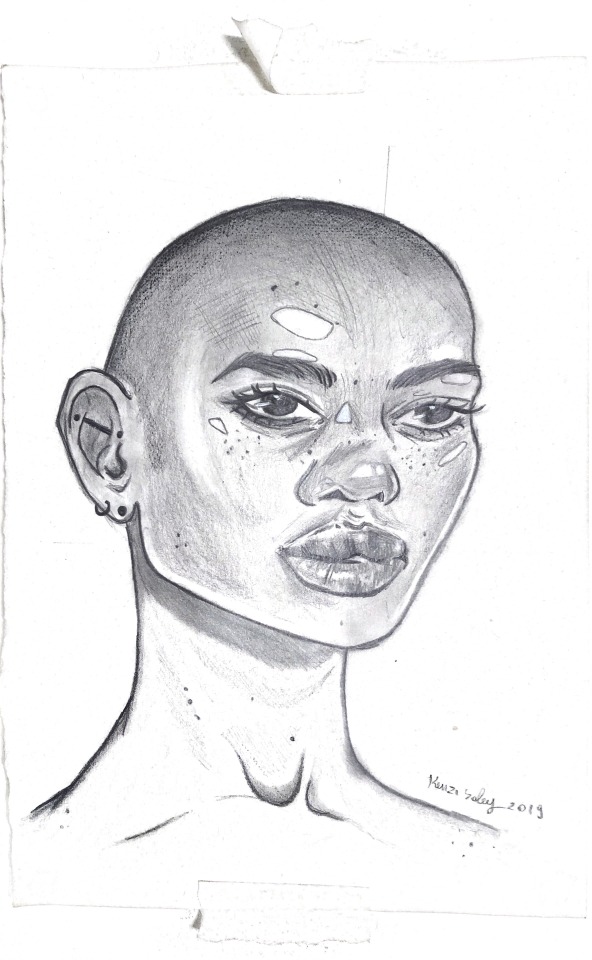#thandile
Text
warhammer high elf names
Adagiel Adariendor Aedei Aediaodilna Aedilon Aeska Aespa Aessa Aethakon Aethon Aethya Aetulle Alondel Alossag Altarathin Altarin Althan Amenoly Amria Amrillos Amrin Anadilon Anadilos Anadyina Anahaircya Antar Anthazell Anticum Anwendis Anwendrei Anwesull Aphalac Aphalon Aphanaruin Araliand Aralinne Aralize Aralos Araniane Arasmira Araurel Arautarana Ardrethinil Ardriena Arhall Arhanian Arthoi Artlec Artlinia Arwenoril Arwenorn Arwesll Astara Astaratheus Aurellidl Aurenion Aurenya Aureonna Aureskarhil Aurethalize Avelga Aveliel Avessagiana Avest Avesullain Azrigar Azrion Baranan Barierth Barilo Belga Belia Beliandir Bellyn Cayadyalor Cayalfren Cayla Ceron Certhalmir Ceylahuir Ceylariana Ceylyn Cirath Cirene Cuolac Cuolshais Cyllin Cylyn Cythalon Cytheus Cythia Cythilin Damarus Damdiana Damithar Darillos Derel Derion Derossand Dithan Dithindyin Dithircya Dithurus Dorina Driel Drinordia Drisheus Dydil Dydiondei Dydisagiana Dydriellos Dydrine Edene Edera Ederei Edhavara Eilon Einhana Eldar Eldarathis Eldrei Eldri Eldria Eldriand Eldriel Eldrilinh Elecairo Elenel Elenyurelis Elinh Elion Eliondel Eliss Elron Elros Ennann Eponadir Erelaydrus Eshakon Eshan Esheus Exarathain Eydriel Fandolan Fendiar Fenlui Fenolyn Ferathon Ferei Ferel Fergh Feria Ferion Ferradya Feylle Fhindrelan Fhine Fhinocco Fiandyin Filiel Fillaya Fillindhan Fondruma Gaindrilan Galfa Galion Galonadiel Gemmir Gemmitheer Gendorione Genis Gereon Gergh Grian Griernael Gudei Gudel Gudenocco Gwessa Haerondr Halfrela Haliethaera Hallinora Hallos Harath Harinnadara Haron Heman Hemandyin Hemma Hemman Horel Horna Hornael Hullis Ichius Illag Illec Illenoland Ilonahn Ilondr Ingalora Inreldrinor Inril Iolahil Iolana Iolgo Iolgrei Iolsh Iolwenilna Iruarhir Iticly Itikaran Itilian Itilla Izuarlor Jindornhana Jinra Jolac Jolshinocco Jolthurel Kavalfa Kaveslliss Kavin Keelgaros Keerell Keeren Keevana Keevar Kerisa Kerondiel Khainna Khandrind Killa Kilnil Kjedion Kjedir Korhilo Kychian Kychiras Kyrion Kyriona Laratheus Laraunne Launn Laurel Laurendrel Laurus Lautlen Lautlinrel Laydis Laydrinne Layla Lecain Lecais Lianahurei Liandre Liaora Licly Licum Licumoi Lithene Littar Lorda Lorhis Loria Lornh Lothil Lothin Lothur Maerellise Maeren Maeriel Mallec Manaraunn Manrei Maruvar Mehria Meliona Meliulian Mellone Mellyn Menlutlize Menya Merana Merellenel Mergh Mernh Meron Merra Mlektra Mlennae Mlenol Morathin Mornh Myrienel Nashaise Nashalo Nashan Nashion Nathlen Nathur Noeghael Noeghazell Olfar Ophianan Ophiul Oriella Orienill Orishal Osydrion Prellyndrin Qinand Qinora Quinilna Quinissand Quinqui Quirel Retheus Rhain Rhaze Rhodilgrei Rhonne Rinnahiula Rinne Rodar Rodara Rodien Rodiethana Rodil Rowandalan Rowanluirel Rowantilian Ruybin Ruybindran Saathinocco Sadar Sadrenahir Sadrin Sakkaron Sakone Sammana Sammiren Sanahuinian Saradir Sarathion Seliandrela Sendri Shakeya Shala Shalize Shalo Shalone Shand Shanlui Sharielafyn Sharuara Shavinahur Sheerifeon Sheus Sikara Solasmir Solsh Solyn Sulinahanel Sulla Sullon Taindolsh Tainne Taion Taionn Talar Talion Taordrin Tefaroran Tendarin Tendel Tendiel Tenthon Thaion Thakon Thalafyndei Thalin Thama Thandil Thane Thara Thindri Thinian Thishion Thoitaron Tifor Tilla Tiron Torandrien Triel Triendian Urdril Valan Vallian Valmijn Valorn Verene Vertlis Veska Vigia Vigiel Waera Waerriel Waerro Wendagiana Wenilina Wenor Wenoriel Westar Westarro Weylitar Yasmira Yastil Yavelac Yelan Yelin Yelinildril Yorion Yrell Yretheel Yrien Yrifornar Yrion Yrthin Yrthinilos Yrtliene Yulla Zaamaron Zaamdillan Zaathia Zaathya Zamdil Zamdise Zamma Zilion Zilonellan Zubar Zubaria
#names#name stash#fantasy name generation#fantasy name#fantasy names#random names#stash of names#444names#444 names#dnd names#worldbuilding names#random fantasy names#random worldbuilding names#random fantasy name generator#character names#random character names#random character name#markovgen#markov namegen#markov name generator#markov name generation#markov#markov gen
1 note
·
View note
Text
Celebs Slam TotalEnergies' AFCON Sponsorship
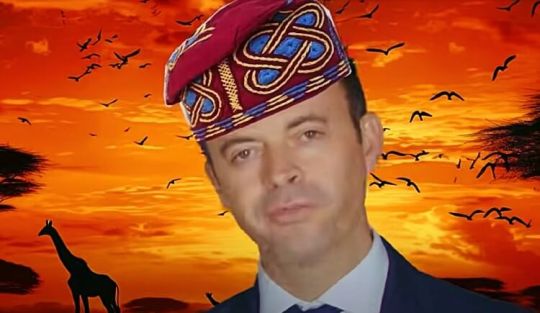
Challenging TotalEnergies' Role in AFCON
In a bold move by Greenpeace Africa and the Kick Polluters Out movement, a parody video featuring celebrity comedians has been released, criticizing TotalEnergies' sponsorship of the prestigious Africa Cup of Nations (AFCON).
Celebrities Against Fossil Fuel Sponsorship
Satirical Take on Environmental Exploitation
The video, which features Zimbabwean comedian Munashe Chirisa and British Bafta Award-winning writer Jolyon Rubinstein, takes a humorous yet scathing approach to TotalEnergies’ exploitation of AFCON's global platform. It portrays the energy giant as capitalizing on the event for image-boosting, while its business practices contribute significantly to environmental degradation across Africa.
Comedy with a Cause
Utilizing the power of satire, the video aims to shed light on the hypocrisy of TotalEnergies, juxtaposing its public image against its ongoing fossil fuel exploration and extraction activities in Africa. It cleverly uses humor to highlight the stark reality of the situation, emphasizing the urgent need for action against such environmental injustices.
Greenpeace Africa's Stance
Advocating for Clean Energy and Healthy Africa
Greenpeace Africa’s Oil and Gas Campaigner, Thandile Chinyavanhu, voices a strong condemnation of TotalEnergies’ activities. Additionally, she articulates the detrimental impact of fossil fuels on the health of African athletes and soccer fans and emphatically calls for a shift towards clean energy. Moreover, Chinyavanhu emphasizes the critical need to prioritize a clean, healthy Africa over the pursuit of corporate profits.
A Call for Action
The campaign urges football fans and the wider public to not just cheer for their teams but also champion a future free from fossil fuel domination. It is a call to turn a passion for football into action for the environment, underscoring the deep connection between sports and societal issues.
The Broader Environmental Impact
TotalEnergies' Destructive Projects
TotalEnergies' involvement in projects such as the East African Oil Pipeline (EACOP) and gas developments in Mozambique and South Africa not only highlights the widespread environmental impact of their operations but also underscores the significant risks these projects pose to local communities, ecosystems, and, furthermore, their contribution to the global climate crisis.
Financial Context and Profitability
The enormity of TotalEnergies' profits, standing at over $6.7 billion in the third quarter of 2023, further illustrates the disparity between corporate gains and environmental and societal costs. This financial backdrop adds to the urgency of the call for TotalEnergies to be held accountable for its environmental footprint.
A Rallying Cry for Environmental Justice
This campaign, led by Greenpeace Africa and supported by celebrities and activists, is more than just a critique of a corporation; it's a rallying cry for environmental justice and the protection of Africa's natural heritage. It symbolizes the growing global awareness and activism against environmental exploitation by large corporations, especially in vulnerable regions like Africa.
As the AFCON takes center stage, this campaign importantly brings to the forefront the crucial conversation about the role of big businesses in climate change. Furthermore, it underscores the collective responsibility to advocate for a sustainable future, emphasizing the need for concerted action and awareness in tackling environmental challenges.
Sources: THX News & Greenpeace.
Read the full article
#Africanfootballcompetition#Africanunityandcleanenergy#Celebritycomediansenvironmentaladvocacy#Climatechangeawareness#EnvironmentalimpactinAfrica#Fossilfuelindustrycriticism#GreenpeaceAfricacampaign#KickPollutersOutmovement#SatiricalvideoonTotalEnergies#TotalEnergiesAFCONsponsorship
0 notes
Video
vimeo
WON´T WE UNDERSTAND from TIM LORENTZÉN on Vimeo.
Director: Esteban
DP: Tim Lorentzen
Editor: Chris Zimmermann
Art Director: John Bekker
Colorist: Michael Rossiter
Music: Parka Sound
Vocals: Vinson Fraley
Film lab: Focus Film
Production: North South Productions & BWGTBLD
Shot on Arri sr3 and kodak 7207 & 7219.
Thanks so much to
Annette, Louis, Imran, Stefanie, Michael McWilliam, Rosa, Sami, Lifu, Fanny, Randal, Mieke, Garth, Lydia, Sarah, Russouw, Prince, Antonio, Melissa, Vanina, Alis, Lionel, Darren, Thandile, Britney, Zanozoku, Jakob & Philipp and everyone else involved! Ned, Fantastic Agency
0 notes
Photo

Model: Ratile aka madam_thandile
Photographer: bymsha browne
https://www.flickr.com/photos/brownecheese/28297305657/in/feed
#RMAudios #RMEbooks#RMEbook #RMCollage#Kobo #AALBC #Youtube
12 notes
·
View notes
Text
“Oi,” calls a voice out of the dark. “You in the back. D’you keep Pact?”
Malborn takes his face out of his hands.
He is sitting, along with ten crates of cabbages and three barrels of mead, in the back of a covered cart bound for Dunmeth Pass. He’s been sitting in this cart all afternoon. Tomorrow afternoon, when they reach the border—the smugglers have been particular about this—he will crawl into the eleventh crate, which is empty, and the smugglers will pile cabbages on him. This, according to the one with the slick smile, will keep him alive as they pass through customs.
Maybe. Maybe not.
Though Malborn thinks that, after all he’s been through, he can probably survive pretending to be a cabbage.
“Yes,” he says, mustering a ghostly smile—a useless gesture in the dark, but one that he thinks he ought to practice. “Don’t worry. I won’t eat your merchandise.”
Whoever had spoken grunts, apparently satisfied, and goes off about his business—probably back to the cookfire the smugglers have kindled outside. It’s too risky, thinks Malborn, to join them. Not that he wants to. From the cart, he can smell what they’re boiling: chamomile in the kettle, canned beans in the pot, potatoes leaping and hissing in the pan. Nothing a carnivore by creed can eat.
He’d paid for passage, he reminds himself, not fare. And they’re nearly there. Nearly there.
Then there will only be pickets to pay off, false papers to procure, pleasantries to pretend for the rest of his terrified life—
The light of a lantern floods the cart. Malborn scrambles behind one of the crates.
“Easy,” says the smuggler from before, laughing a little. He swings the lantern over the crate, revealing his grinning face: clever and dark, caked on one side with cracking yellow paint. “Ease yourself. Brought you this, is all.”
And he hands Malborn a steaming cup.
He has another tucked, a little perilously, in the crook of his arm; he sets the lantern atop one of the barrels and sips it, smiling his slick smile, as Malborn—heart pounding, face flushed with prey-animal shame—crawls around the crate and suspiciously inspects his own cup. It looks like tea. He can’t drink tea. He sniffs it, frowning—
“Chicken stock,” says the smuggler.
Malborn stares at him.
“Reckoned you could do with something hot,” the smuggler continues, unperturbed. “And we had”—he twists his mouth, thinking, then brightens—“bullion cubes.”
Malborn is too polite to correct him. He watches, politely wary, as the smuggler leans against one of the barrels. For a slight man, he takes up space—like a big cat, Malborn thinks, in a small cage. A small cage with Malborn in it.
The smuggler studies him.
Then he smiles, amused. “You think we might sell you out.”
Malborn tries to smile back. The smuggler snorts.
“Name of Sala,” he says, raising his cup to Malborn in mock toast. Malborn wonders if he, too, is drinking chicken stock. “You thought of one?”
“What?”
“A name.”
Malborn has not. Malborn has not considered, not once in a cold cross-country flight in which he has accounted for every other contingency, that he can no longer be both Malborn and safe.
“Orranil,” he rasps after a moment’s morbid thought, testing the shape of the name on his tongue. It was his brother’s name—had been, before the Thalmor took his brother away. “My name is Orranil.”
“No, it en’t,” Sala the smuggler says at once. He taps two crooked fingers on his cup and looks Malborn up and down, ruthless in his scrutiny. “Try again, daesohn. Something that won’t stab at you to say.”
Malborn furrows his brow.
Then he realizes, glancing down at his reflection in his cup, that his face is gaunt with grief.
“Um,” he says, and closes his eyes. “I’ll—think about it. Thank you.”
By which, of course, he means go away. He waits, ears pricked, for the creak of footsteps across the dusty boards.
The footsteps creak towards him. Malborn suppresses a grimace.
“Had a friend named Thandil,” the smuggler says, easing himself to the floor. He slings a companionable arm across the crate Malborn’s leaning against. “You look a little like a Thandil. Squirrely.”
Malborn stares at him.
“No?” The smuggler smiles, unoffended, and sips his tea. “You like Meravil? Thandil, he had a cousin Meravil.” He holds his cup with his knees and scratches the stubble on his chin, pulling his mouth thoughtfully to one side. “Or maybe it was just Eravil. Leravil. Fitted counters, Mera-Era-Leravil.”
Malborn, with some effort, lifts his eyebrows. “A craftsman.”
“And his work survives him in every purse in Bravil—no?” The smuggler grins. “Well. Had another friend named Benelor.”
“What did he do?”
“Baked pies,” says the smuggler. “Still does.”
It occurs to Malborn, holding his cup in both hands, that his heart is no longer kicking his ribs. On the floor of a cabbage-cart, not quite in the crook of a criminal’s arm, he’s alive and drowsy and warm.
“All right,” he murmurs, closing his eyes. He takes a deep breath of chickeny steam, then opens them again. “Benelor. That’s me.”
The smuggler smiles. It’s a crooked smile, but real.
“There,” he says, and pats Malborn on the shoulder. “One less thing to think about.”
#still on hiatus but i finished this so i figured i'd post it :)#skyrim#microfic#malborn#oc tag#sala
143 notes
·
View notes
Text
LA BENZINA AL PIOMBO ABOLITA IN TUTTO IL MONDO
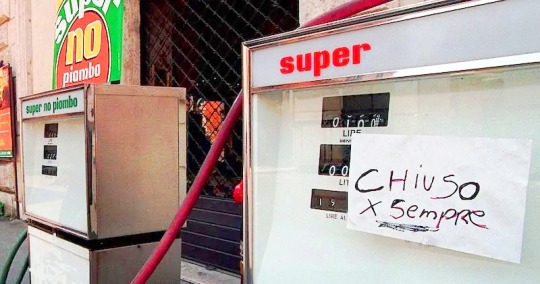
L’Organizzazione delle Nazioni Unite ha annunciato ufficialmente che la benzina al piombo è stata definitivamente bandita in tutti i Paesi del mondo.
Dopo una campagna durata quasi venti anni per far adottare carburanti meno inquinanti e pericolosi per la salute, anche l’Algeria, l’ultimo Paese che ancora ne consentiva la vendita, ha sancito la fine della distribuzione di questo carburante. In molti stati la vendita era già vietata da quando diversi studi scientifici hanno dimostrato che il piombo è alla base di malattie cardiache, cancro e ictus ed è stato collegato a problemi di sviluppo del cervello nei bambini. La maggior parte delle nazioni ad alto reddito hanno vietato il carburante già dagli anni '80.
Il segretario generale delle Nazioni Unite António Guterres ha dichiarato che: "La fine dell'uso della benzina con piombo eviterà più di un milione di morti premature ogni anno".
"Il carburante al piombo è l’esempio del tipo di errori che l'umanità ha commesso a tutti i livelli delle nostre società", ha affermato Inger Andersen, direttore esecutivo di Unep, aggiungendo che “Sradicare questo carburante mostra che l'umanità può imparare e correggere gli errori che ha commesso". Greenpeace ha definito questo traguardo come "la fine di un'era tossica". "Se possiamo eliminare gradualmente uno dei combustibili più inquinanti del 20° secolo, allora possiamo anche eliminare gradualmente tutti i combustibili fossili", ha affermato Thandile Chinyavanhu di Greenpeace Africa.
_____________________
Fonte: Organizzazione delle Nazioni Unite - 30 agosto 2021

✔ VERIFICATO ALLA FONTE | Guarda il protocollo di Fact cheching delle notizie di Mezzopieno
✖ BUONE NOTIZIE CAMBIANO IL MONDO | Firma la petizione per avere più informazione positiva in giornali e telegiornali

Se apprezzi il nostro lavoro e credi nel giornalismo costruttivo non-profit ✛ sostieni Mezzopieno
1 note
·
View note
Text
UN declares milestone victory as leaded petrol is officially eradicated
https://sciencespies.com/environment/un-declares-milestone-victory-as-leaded-petrol-is-officially-eradicated/
UN declares milestone victory as leaded petrol is officially eradicated
The use of leaded petrol has been eradicated from the globe, a milestone that will prevent more than 1.2 million premature deaths and save world economies over US$2.4 trillion annually, the UN Environment Program (UNEP) said Monday.
Nearly a century after doctors first issued warnings about the toxic effects of leaded petrol, Algeria – the last country to use the fuel – exhausted its supplies last month, UNEP said, calling the news a landmark win in the fight for cleaner air.
“The successful enforcement of the ban on leaded petrol is a huge milestone for global health and our environment,” said Inger Andersen, executive director of UNEP, which is headquartered in Nairobi.
Even as recently as two decades ago, more than 100 countries around the world were still using leaded petrol, despite studies linking it to premature deaths, poor health, and soil and air pollution.
Concerns were raised as early as 1924, when dozens of workers were hospitalized and five declared dead after suffering convulsions at a refinery run by US giant Standard Oil, nicknamed the ‘looney gas building’ by staff.
Nevertheless, until the 1970s almost all the gasoline sold across the globe contained lead.
When UNEP launched its campaign in 2002, many major economic powers had already stopped using the fuel, including the United States, China, and India. But the situation in lower-income nations remained dire.
‘End of a toxic era’
By 2016, after North Korea, Myanmar, and Afghanistan stopped selling leaded petrol, only a handful of countries were still operating service stations providing the fuel, with Algeria finally following Iraq and Yemen in ending its reliance on the pollutant.
UNEP said in a statement that the eradication of leaded petrol would “prevent more than 1.2 million premature deaths per year, increase IQ points among children, save US$2.44 trillion (2.07 trillion euros) for the global economy, and decrease crime rates”.
The agency said the dollar figure came from a 2010 study led by scientists at California State University at Northridge.
Its chief factors were the benefits of better health for the overall economy, lower medical costs, and a dip in criminal activity – higher crime rates have previously been linked to exposure to leaded fuel.
UNEP warned that fossil fuel use in general must still be drastically reduced to stave off the frightening effects of climate change.
Greenpeace hailed the news as “a celebration of the end of one toxic era”.
“It clearly shows that if we can phase out one of the most dangerous polluting fuels in the 20th century, we can absolutely phase out all fossil fuels,” said Thandile Chinyavanhu, climate and energy campaigner at Greenpeace Africa.
“Africa’s governments must give no more excuses for the fossil fuel industry,” she added.
Globally, vehicle sales are set to climb exponentially, particularly in emerging markets.
“The transport sector is responsible for nearly a quarter of energy-related global greenhouse gas emissions and is set to grow to one third by 2050,” UNEP said, adding that 1.2 billion new vehicles would hit the streets in the coming decades.
“This includes millions of poor-quality used vehicles exported from Europe, the United States, and Japan, to mid- and low-income countries.
“This contributes to planet warming and air polluting traffic and (is) bound to cause accidents,” the global body said.
Earlier this month, a bombshell report by the UN’s Intergovernmental Panel on Climate Change (IPCC) warned that Earth’s average temperature would be 1.5 degrees Celsius (2.7 degrees Fahrenheit) warmer around 2030 compared to pre-industrial times.
A decade earlier than projected, the rise has raised alarm bells about the use of fossil fuels.
© Agence France-Presse
#Environment
0 notes
Text
The Other Side of the Rainbow
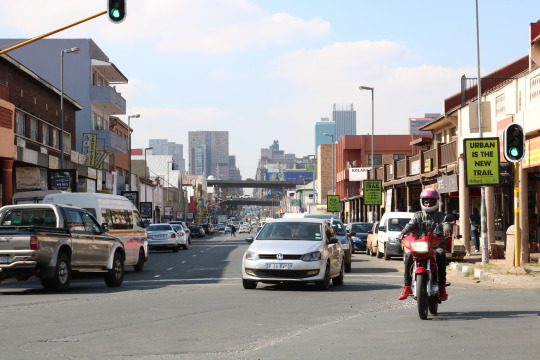
The town of Pageview, formally known as Fietas, is where our group spent the day. Fietas was originally set aside as the first legal town for coloured* people located near the city center of Johannesburg in 1940. However, not only did coloured people come to live there, but also African, Chinese, Malay, and a large Indian population; residing there until 1966.
The Group Areas Act, enacted around 1966, rezoned the town as a whites-only area. Sixty-seven Indian families actively protested the act and remained in Fietas but most others were removed and the town bulldozed over.
The town was renamed Pageview and the thriving street-side market vendors from the past twenty-six years were moved to a mall location known as the Oriental Plaza; our next stop on the Fietas/Pageview journey.
The Oriental Plaza is a bustling Grand Bazaar of differing shops and stores. The aromas of freshly fried samosas and ground spices issue from the right side of the walkway, while fries and coffee are advertised on the left.
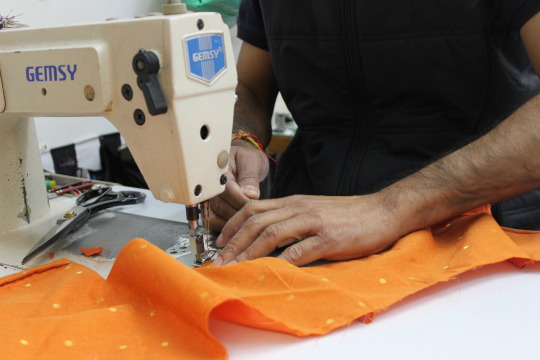
A consumer frequenting the mall can buy a multitude of items and services ranging from carpets, curtains, shoes, dried fruit, bridal dresses, perfumes, fabrics, and live ducks and pet fish. We walked through the indoor and outdoor sections of the mall, slightly confused by the numerous stairs and escalators leading upstairs, downstairs, inside, and out, but luckily had great guides leaders for the day, Beki Ntini and Thandile Zwelibanzi.
We exited the mall full from Bunny Chow (a dish consisting of a loaf of bread filled with curry) and various curries and had our souvenirs such as fabric and dried peaches. Our team member Regina got adventurous bought dried worms which are meant to be boiled and fried before eaten.
We additionally took with us the advice and stories of many of the people frequenting the bazaar, with whom we were encouraged to converse with and learn from on our trek through the bazaar and neighboring streets.
*coulored refers to South Africans who descended from both European and African races
Writing and photo by Bethany Smith, Insta: @tusouthafrica
#2017#south africa#temple university#oriental plaza#oriental plaza south africa#travel#bazaar#culture#beth#betthany#bethany smith#beth smith#blog
0 notes
Video
vimeo
WON'T WE UNDERSTAND? from ESTEBAN on Vimeo.
The beauty of youth.
Director: Esteban
DP: Tim Lorentzen
Editor: Chris Zimmermann
Art Director: John Bekker
H&MU: Wiebke Reich
Colorist: Michael Rossiter
Music: Parka Sound
Vocals: Vinson Fraley
Production: North South Productions & BWGTBLD
Thanks so much to
Annette, Louis, Imran, Stefanie, Michael McWilliam, Rosa, Sami, Lifu, Fanny, Randal, Mieke, Garth, Lydia, Sarah, Russouw, Prince, Antonio, Melissa, Vanina, Alis, Lionel, Darren, Thandile, Britney, Zanozoku, Jakob & Philipp and everyone else involved! Ned & Fantastic Agency
0 notes
Video
vimeo
WON'T WE UNDERSTAND? from ESTEBAN on Vimeo.
The beauty of youth.
Director: Esteban
DP: Tim Lorentzen
Editor: Chris Zimmermann
Art Director: John Bekker
Colorist: Michael Rossiter
Music: Parka Sound
Vocals: Vinson Fraley
Production: North South Productions & BWGTBLD
Thanks so much to
Annette, Louis, Imran, Stefanie, Michael McWilliam, Rosa, Sami, Lifu, Fanny, Randal, Mieke, Garth, Lydia, Sarah, Russouw, Prince, Antonio, Melissa, Vanina, Alis, Lionel, Darren, Thandile, Britney, Zanozoku, Jakob & Philipp and everyone else involved! Ned & Fantastic Agency
0 notes
Video
vimeo
WON´T WE UNDERSTAND from TIM LORENTZÉN on Vimeo.
Director: Esteban
DP: Tim Lorentzen
Editor: Chris Zimmermann
Art Director: John Bekker
Colorist: Michael Rossiter
Music: Parka Sound
Vocals: Vinson Fraley
Film lab: Focus Film
Production: North South Productions & BWGTBLD
Thanks so much to
Annette, Louis, Imran, Stefanie, Michael McWilliam, Rosa, Sami, Lifu, Fanny, Randal, Mieke, Garth, Lydia, Sarah, Russouw, Prince, Antonio, Melissa, Vanina, Alis, Lionel, Darren, Thandile, Britney, Zanozoku, Jakob & Philipp and everyone else involved! Ned, Fantastic Agency
0 notes
Photo
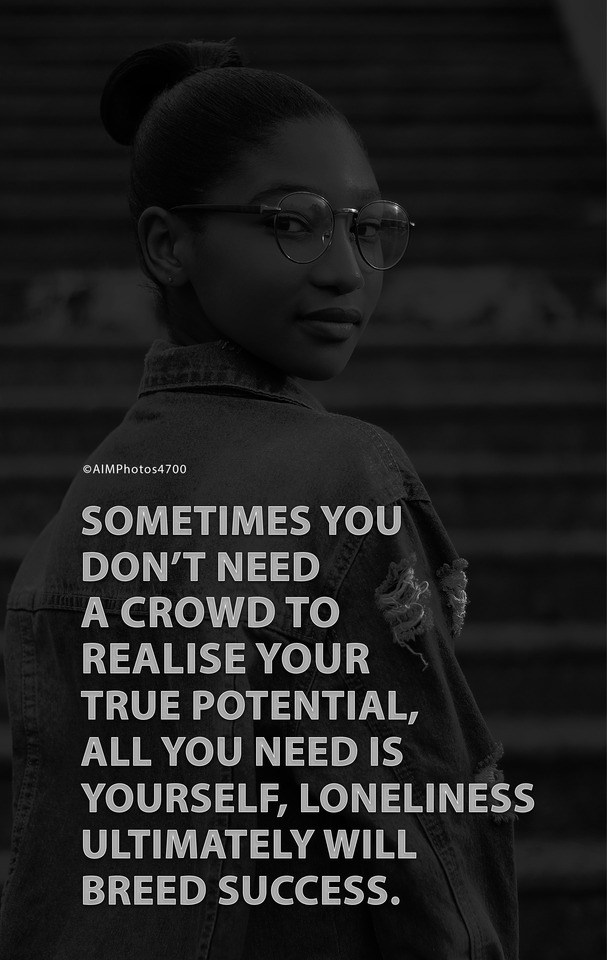
The beautiful Thandile Nomnganga, like @aimphotos4700 for more of her pictures and motivations.
0 notes
Text
REVIEW: Ankobia: A whisper that awakens purposeful existence
Momo Matsunyane, Alfred Motlhapi and Billy Langa. Photographer: Thandile Zwelibanzi
“Xhoi! Xhoi Xhoi”, a conjuring whisper by Kamma and Ditukile of Maitayatshwene order, haunts you as an audience member. It is a whisper not into the ear but into the soul. It is a call that implores one to listen to the susurration of thousands of distant tribes, clans and nations who had the humanity balance.
Not to reduce its message to singularity, the story beseeches us to re-imagine the possibility of a just existence. It challenges us to negate tutelage that brainwashes and propagandize us into servitude, and educates us into ignorance.
The 2017 Standard Bank Artist of Year for Theatre Rre Monageng Motshabi’s choice of the work speaks volumes about his integrity, uprightness and robustness as a playwright, theatre maker and director. He could have easily chosen a work that would be a theatrical spectacle. He instead chose to pen and stage work that sits at the heart of a conflicted post apartheid South Africa.
The co-writing of Rre Motshabi and Rre Omphile Molusi appears to emerge from the concept of ‘Mainane or Dikinane’ – often misconstrued as folk tale, which is a western concept. At the heart of ‘Leinane’ is an interrogation of the life imbalances effected by varied universal inhabitants. ‘Mainane‘ use a combination of symbols, imagery, song, dance, lament and mystical elements to paint either an ideal scenario or a worst case scenario in cases of inaction to curb a situation. Ankobia has all these elements. The choice of a young yet graceful cast speaks to the idea of who major target of the revolution impulse are. The cast together with the musical genius of Volley Nchabeleng, form an ensemble that paints the landscape of the piece with diligence.
All seems well in the world. Only it isn’t, that is what marks the beginning of the plot of Ankobia. The play paints a nuanced worst case scenario set in 2041. The people of Peloikgale are at crossroads in a fight against the beast of monotheistic worldview and systemic oppression. The play intricately navigates this complex subject matter laying it bare in manner similar to that of Credo Mutwa, Ngũgĩ wa Thiong’o and Dambudzo Marechera.
Play credits
Director: Monageng Vice Motshabi
Writers: Monageng Vice Motshabi and Omphile Molusi
Lighting Designer: Thapelo Mokgosi
Set Designer: Thando Lobese
Choreographer: Lulu Mlangeni
Musician: Volley Nchabeleng
Cast:
Omphile Molusi as Magnae Animae
Momo Matsunyane as Kamma
Billy Langa as Ditukile
Alfred Motlhapi as Xhoi
Lillian Tshabalala as Victoria
Katlego Letsholonya as Dominique
Ankobia explores different themes of the whiteness project such as cultural structuring of thought, the use of religion and ideology to drive monotheistic ideal, exploration of power symbols and realities including land, the myth of universal aesthetic, the complexity of image and national consciousness, the image of self and other, the matrix of the function rhetoric and behavior (interpersonal, intracultural and intercultural), the syntax of cultural imperialism, and the life of an unfulfilled lethargic being. With South African situation and history as a backdrop, Ankobia reflects on historical milieu of the cumulative whiteness project stretching as far back as imperialism, slavery and colonialism. Some say what Rre Motshabi has done is bravery, I believe it is pure intellect and an evidence of a storyteller who has a pulse on and awareness of human condition
This minimally constructed story deliberately avoids unnecessary theatrical gimmicks and spectacle by elevating the core subject matter. It subtly pursues everyone to account for their complicit silence and apathy in giving body to entrenchment of ‘whiteness’. It is a story about how the architects of dominance of ‘whiteness’ are frightened to the point of warfare with what and those they see as opposition. The creation of Magnae Animae exemplifies this embodied fear to lose power and control.
Monageng and his creative team have astutely crafted as a confront of a world so swiftly crafted for over 5000 years through the written word, war, hereditary monarchy, private property and monotheistic worldview. So ingrained is this system that an alternative seems impossible and unimaginable. This is the dilemma of Xhoi and those he leads. Through Maitayatshwene’s pilgrimage the struggle to purge the self of this monstrous system is explored and the challenge is not easy. The use of the ‘chip’ and ‘bleach’ as symbols for this oppressive and violent system in the digital age and modern society is a stroke of a genius.
Ankobia absolves no one of the responsibility in enabling the violent system of whiteness. It argues that through self-justifying reason, strife for financial power, and the quest to matter or be seen, we have brought the system to dominant life and the implications have taken over our lives. The hand of repetition and no learning conducts us to a tune and rhythm of calamity. This calamity is carried in simple everyday activities, our diets, anxieties around our bodies, attitudes towards animals, children and nature in general, our sense of gender and sexuality. We have become a callous story that elevates the patriarchal dominance while forbidding, alienating and negating the feminine with fatal imbalance.
Akobia is clarion call to black and people of colour to redress and rid themselves of the narrative that paints them as powerless, apathetic, fearful, delusional, alienated, self-hating, angry, confused, absurdly materialistic, dependent, unhealthy, and unashamed at the grossest misbehaviors. The play challenges one to consciously fashion an Afrocentric enlightenment system, formal and informal, that will repair the colossal damage that centuries of defeats and enslavement and Eurocentric education has done to the Black African psyche. It urges all of us, black and white take responsibility and end the humiliation by race and to take full control of our societies and our destiny.
My challenge to the director and his design team would be around the play staging. Such a play requires a penetration of the fourth wall and a challenge of the theatre space as a symbol for the status quo. In order to fully disrupt the dominant narrative there is need to re-imagine the theatre as a space built for storytelling and stories as literary constituents of life that transforms this black box called the theatre.
What could be a greater testament to our heroism than to overcome the problems that face us today? Why would we wish to escape this kind of challenge? It’s too wonderful, too magnificent. Now that’s how one could matter. Ankobia Speaks. This review is just a whisper, lets make Ankobia a voice. “Moroto wa oo esi ga o ele”.
Maatla. Strength!
REVIEW: Ankobia: A whisper that awakens purposeful existence was originally published on Artsvark
0 notes
